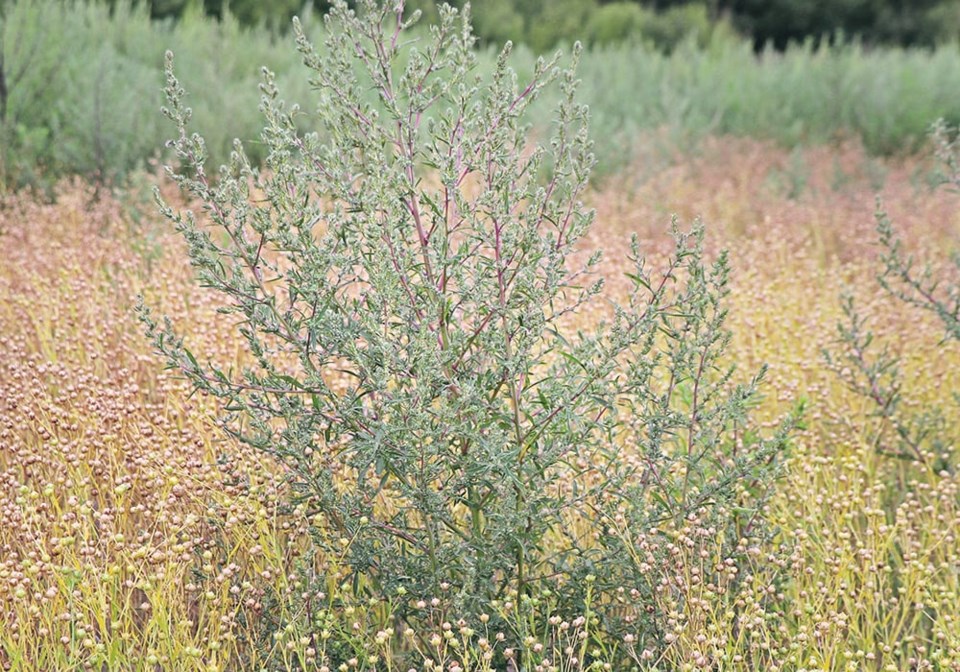WESTERN PRODUCER — As part of The Western Producer’s 100th anniversary, we conducted a survey with the help of iFusion Research, in which we asked 100 farmers 100 questions.
Farmers from across Western Canada, representing a variety of farm sizes and types, were asked about topics as varied as grain marketing, machinery, land use and life on the farm.
The survey was more of a temperature check of farmer sentiment on specific farming related topics rather than a full-on state of the industry poll.
Part of this initiative includes three webinars and an event at Ag In Motion, where Greg Dunlop of iFusion Research and I discuss specific sections of the questionnaire.
We also invite an industry partner to these events to provide information on topics of the survey.
Last week we held the first webinar, in which we discussed herbicide use and weed resistance.
Of the farmers we surveyed, 71 per cent were either extremely concerned or very concerned about weed resistance, while 28 per cent of farmers were either not at all concerned or somewhat concerned.
When it comes to what they think the future has in store, 61 per cent of respondents think weed resistance will become a bigger problem while 37 per cent said it will likely remain the same.
Most farmers have had weed resistance issues, with 88 per cent of survey respondents indicating they’ve had to contend with at least one resistant weed on their farm.
The most common herbicide resistant weed is wild oats with 73 per cent of respondents claiming to have it,63 per cent with kochia, 19 per cent with cleavers, 16 per cent with green foxtail and 14 percent with volunteer canola on their farms.
In all, farmers rated their experience with 13 resistant weeds.
There were significant regional differences when it comes to farmers’ experience with herbicide resistant weeds, which is broken down in the webinar.
The surveyed farmers used many strategies to combat weed resistance: 92 per cent rotated herbicide groups, 90 per cent used herbicides with multiple modes of action and 88 percent rotated crops.
A significant percentage of respondents managed weeds in the fall, identified and managed patches of weeds and scouted fields for weeds and recorded locations.
The least used strategies were strategic tillage, cleaning weed seed out of equipment and developing a long-term weed management plan.
When it comes to what farmers think protection companies can do to help with weed resistance, the most common response is that they should continue research and development into find new solutions, particularly new mode of action herbicides.
Farmers also say companies that sell herbicides can help with awareness, information and education on weed resistance and strategies and provide services such as scouting and mapping.
Respondents said there is room to develop non-chemical methods of weed control, including biologicals, new varieties tolerant to new herbicide groups and equipment that uses electric currents and targeted spraying.
The survey found that the majority of farmers are optimistic that resistance can be handled in the future as a shared responsibility between farmers and crop protection companies.
In last week’s webinar, three representatives from Bayer CropScience — Rory Cranston, Ashley Smith and Tim Gardner — described what they think future crop protection will look like and what farmers can do today to prevent the development of herbicide resistant weeds on their farms.
Panelists also answered questions that came in through the chat during the webinar. They discussed how artificial intelligence can help the industry combat herbicide resistance and production strategies that can reduce some of the pressure that weeds exert on herbicides.
If you want to hear what they have to say, and for more details on the Herbicide Use and Weed Resistance section of the WP 100 survey, visit .




